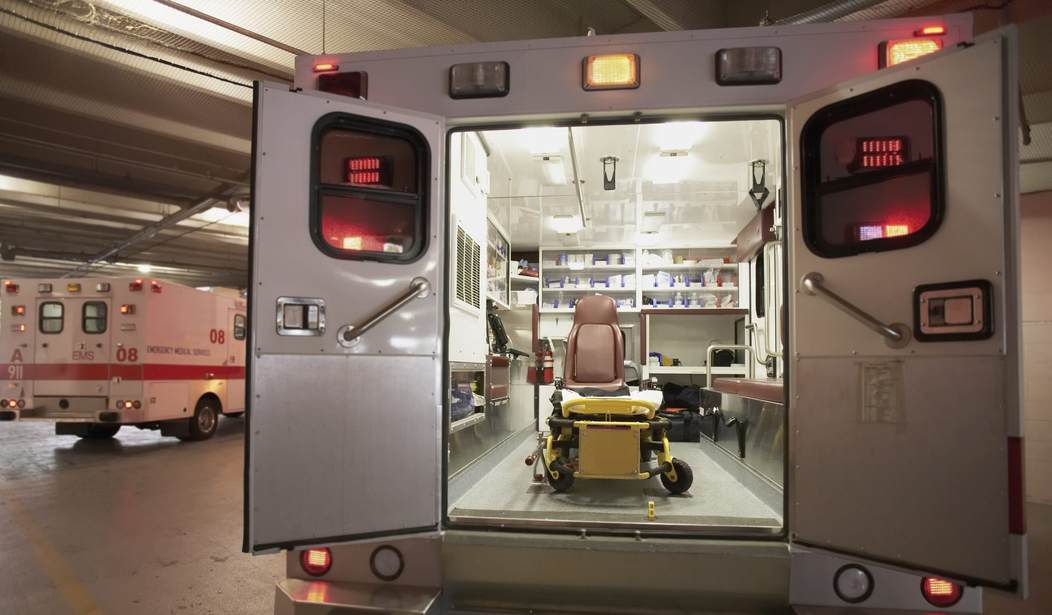California Proposition 11 is an upcoming ballot initiative that aims to redefine labor laws in the context of emergency first responders. The primary measure of the initiative is to exempt EMTs and paramedics from the state’s labor requirements which currently mandate interruption-free meal breaks, thereby keeping EMS crews available to run calls in the community. On the surface this sounds not just necessary for the community, but reasonable to expect of the men and women dedicating their professional careers to the emergency needs of their towns, cities, and neighborhoods.
Like with most things in politics, though, there is much more to the story than the proposition lets on.
Having worked as an EMT in Los Angeles from 2014-2016, my visceral response to hearing of this proposition was that it is utterly ridiculous. Termed a “C-7,” EMS crews’ meal breaks are far from being set in stone. First, meal breaks are never predetermined. A crew would have to call on the radio and ask dispatch to be placed on the break, and dispatch is entirely able to decline the request due to coverage needs. Second, even if the crew is placed on the meal break, they can always be pulled off of it. While anecdotal, I can’t begin to count the number of times I was pulled off my lunch break on a seemingly endless 24-hour shift for a nearby emergency call.
Still, most crews don’t mind getting pulled off meal breaks for emergency calls. After all, that’s what we’re there for — and most of us working in EMS love what we do.
But in addition to the emergency calls, called “Code-3s,” there are also plenty of non-emergency calls the public doesn’t typically think about, termed “Code-2s”: Dialysis transports, hospital discharges, interfacility hospital transfers, and the like. These non-emergency calls are supposed to be held until after the meal break (and they usually are), and this is what C-7s spare EMS crews from.
That said, if dispatch were to pull the crew off their break for a call, they are then entitled to an extra hour of pay for working through their meal break.
Prop 11 is sponsored by an organization called “Californians for Emergency Preparedness and Safety,” which has spent $21.9 million promoting Prop 11. Every cent donated to the organization has been from a private ambulance company, American Medical Response (AMR), which happens to be the largest ambulance service in not just California but in the United States.
AMR just spent over a year fighting the International Association of EMTs and Paramedics — the union representing the EMTs and paramedics working for AMR — on raising the salaries of its EMTs to be higher than the state’s minimum wage. It now appears AMR put millions of dollars into a shell organization to further more legislation which would prevent them from properly paying their employees.
EMTs in Los Angeles average $12.96/hour, and paramedics average $16.50/hour. First-responders in the state are infuriated: For the price AMR invested in this proposition, they could have paid for 1,486,762 missed meal breaks.
As upsetting as Prop 11 is for EMTs, there is much more to the story. In late 2016, the California Supreme Court heard Augustus v. AMB Security Services: A security guard for a private company argued that her breaks were meant to be entirely duty-free, and that the company could not expect guards to monitor their radios and pagers during their scheduled breaks. The Supreme Court ruled in Augustus’ favor. Out of a fear that this ruling would be extended to private EMS companies, AMR began rallying for Prop 11 so as to clearly exempt their workers from uninterrupted meal breaks, which they argued would require a 25% increase in staffing needs.
There was already a bill moving through the state senate addressing just this issue: AB-263 passed through the house in mid-2017 before stalling in the senate. AB-263 clearly states that EMS personnel could be pulled off their breaks for emergency calls — and yet AMR vehemently opposed this bill, launching an online campaign called “Lives Before Lunch.”
The two biggest points of contention for AMR were: (1) Whether crews could also be called off their breaks for non-emergency calls (what, then, is the point of the break at all?); and (2) Whether the bill would void ongoing labor-related lawsuits which AMR was presently facing.
What is truly amazing here is that everybody agrees that there needs to be legislation addressing this issue. But Prop 11 is not the solution. One must remember that paramedicine as we know it today has existed for less than a half-century, and in the ongoing battle by those in the field to help shape its development, issues such as this will inevitably arise. But by voting “yes” on Prop 11, one effectively spits in the faces of emergency first responders. They not only rarely get meal breaks in the first place, but now they would not be compensated for working 12- to 24-hour shifts without a break, either.
The initiative is the epitome of the evil inherent to corporate EMS. In the larger picture of the proposition, I would urge voters to Vote NO on Prop 11 come November, and to demand an equitable solution for EMTs, private EMS companies, and ultimately, our communities.
Disclaimer: While I still work as an EMT, I neither work in California nor am I employed by American Medical Response, nor have I been since 2016. I have no vested interest in Prop 11 directly, and I wrote this opinion piece entirely as an individual who loves the field he works in, and hopes to see it develop fairly and respectably in America as well as the world at large.









Join the conversation as a VIP Member